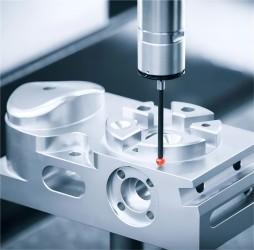What Determines the Cost of CNC Milling Steel Parts?

The cost of CNC milling steel parts is affected by a variety of factors, including:
Complexity
The quantity of features, the strictest tolerances, and the demands for the surface polish are all factors that increase complexity. For instance, it will take longer to machine a part with many holes, pockets, and other characteristics than one with a few simple features. This is because more features require more time to machine.
Tooling
The type of tools used to make the component will also affect the price. For instance, some tools, like carbide and diamond tools, are more expensive than others. The kind of tool required will depend on the steel being used, specifically its hardness and machinability. As a part becomes more complex, more tools will be required to machine it. For example, more tools will be needed to assemble a part with many holes and pockets than a part with just a few simple characteristics. Certain components can require specialized tooling that is unusual in conventional machine shops. The cost of leasing or purchasing this specialized equipment may increase the component's cost.
Material
The type of steel used will have a major impact on the part's price. Compared to other forms of steel, stainless steel, and high-alloy steels are more expensive. For instance, mild steel is a material that can be processed easily and is fairly priced. This makes it the perfect choice for components that don't need to be incredibly tough or corrosion-resistant. Even though stainless steel costs more than mild steel, it is more durable and corrosion-resistant. This makes it a great alternative for parts that need to be durable and strong. The price of the material will also depend on the size and shape of the portion.
Quantity
Depending on how many parts are ordered, the price may also change. Larger purchases frequently have lower cost per unit than smaller orders. When operating in large quantities, a machine shop can make more of the same thing at a lower cost. To complete the entire order, for instance, the machine shop might only need to set up the machine once. The setup cost for a CNC milling machine could be expensive. Due to the spread of the setup cost over a higher volume of items, larger orders will have lower setup charges per unit. For bulk discounts, machine shops frequently haggle with their material suppliers. They can bargain for a better price for the steel they use on larger orders, which they can then pass along to the customer as a lower per-unit price.
It's important to understand the variables that determine how much CNC milling steel parts cost so that you can haggle with machine shops to get the best price. For instance, if you're ordering a lot of parts, you can ask for a volume discount. Knowing what influences the price of CNC milling steel parts will help you plan your project's budget more efficiently. This is essential for both small and large enterprises since it can reduce wasteful spending. You can plan out your project better if you are aware of the variables that affect the cost of CNC milling steel parts. You might choose to utilize a different material or design to reduce costs.
- Art
- Causes
- Crafts
- Dance
- Drinks
- Film
- Fitness
- Food
- Giochi
- Gardening
- Health
- Home
- Literature
- Musica
- Networking
- Altre informazioni
- Party
- Religion
- Shopping
- Sports
- Theater
- Wellness


